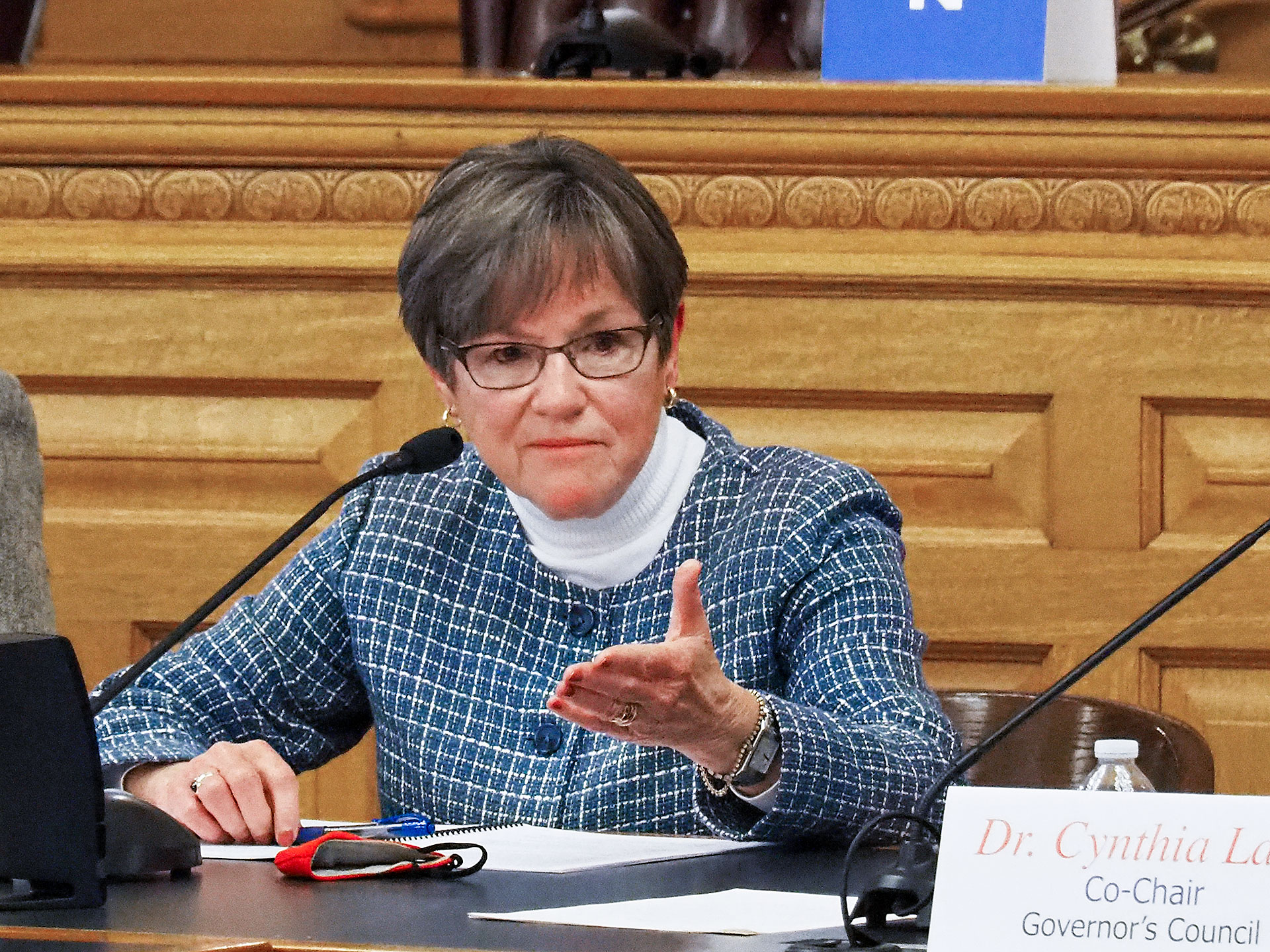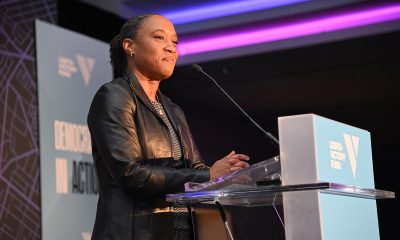National
Tempers flare over negative messages in Va., S.F.
Victory Fund defends ‘attack’ mailings amid criticism from Cleve Jones, other Dems

Negative campaign messages were unleashed on behalf of openly gay candidates in Virginia and San Francisco during the past two weeks, raising the ire of LGBT activists and their straight allies.
In both cases, the messages were issued by the Gay and Lesbian Victory Fund, a non-partisan group that raises money and campaigns to help elect openly LGBT candidates across the country.
One of the group’s messages, issued in the form of an email sent to the Victory Fund’s members and donors, targeted Virginia State Sen. Janet Howell (D-Reston), who is being challenged by gay Republican Patrick Forrest, an attorney and former senior official with the U.S. Department of Homeland Security.
The other message came in the form of a mailing that targeted San Francisco City Attorney Dennis Herrera, who is being challenged in his race for San Francisco mayor by gay former San Francisco Supervisor Bevan Dufty. Both are Democrats and the two are among 16 candidates running in the hotly contested mayoral race.
Victory Fund spokesperson Denis Dison said the email in Virginia and the mailing in San Francisco were aimed at informing Victory Fund supporters in Virginia and mostly LGBT voters in San Francisco of the gay candidates’ qualifications and their opponents’ shortcomings as part of a widely used campaign practice in American politics.
But the messages angered some gay Democratic activists in Virginia as well as LGBT Democrats and independents in San Francisco who are backing Herrera. The messages were signed by Victory Fund president and CEO Chuck Wolfe.
In the Virginia email, Wolfe cited a Washington Blade story last month that reported Forrest and his supporters had accused the Howell campaign of using “gay baiting” tactics against Forrest. The Blade story reported that Forrest and his supporters learned that a Democratic Party volunteer approached voters and asked them if they knew that Forrest was gay and allegedly told them he would promote a “homosexual agenda” in the state’s public schools.
Without mentioning Howell by name, Wolfe stated in his email, “That kind of divisive campaigning has no place in politics, and it’s wrong no matter which party does it.
“We’re standing up for Patrick because openly gay voices in politics are far too rare in places like Virginia, and because he’ll be the only openly LGBT Republican state legislator in America if he wins his campaign,” Wolfe said in his email.
Howell told the Blade the Democratic campaign worker was not part of her campaign and acted without authorization and was quickly dismissed from any role in the party dealing with the Howell campaign.
Leaders of LGBT Democrats of Virginia, a statewide group, called Howell one of the LGBT community’s strongest straight allies in the Virginia Legislature. The group notes that Democrats are clinging to a razor-thin majority in the State Senate and a defeat for Howell and just one other Democrat would flip the Senate into the control of Republicans, opening the way for passage of anti-gay bills next year and the certain defeat of LGBT-supportive legislation.
“I get their interest in wanting to endorse a gay candidate,” said Terry Mansberger, chair of the Virginia Democratic Party’s LGBT Caucus. “But I don’t think it was necessary to attack Janet Howell, a very supportive LGBT ally.”
Mansberger said Forrest’s support for LGBT equality, including same-sex marriage, would make him a welcome addition to the State Senate. But he called Forrest’s candidacy ill timed and the Victory Fund’s support for him irresponsible, saying the ouster of Howell and a GOP takeover of the Senate would be devastating to LGBT equality in Virginia for at least the next two years.
David Lampo, president of Log Cabin Republicans of Virginia, a gay group that has endorsed Forrest, disputes that assessment, saying Democrats would likely retain control of the Senate through wins in other races. He said Forrest would be a strong advocate for LGBT rights in the Senate and within the Senate’s GOP caucus regardless of whether Republicans gain control of the body.
Dison of the Victory Fund disputed claims by Howell and her gay supporters that the Victory Fund had attacked Howell or issued an “attack” ad, as some Howell backers have described it.
“Based on information published by the Washington Blade, the Fund asked its own supporters via email to donate to Patrick’s campaign in the face of gay-baiting reportedly employed by Democratic Party operatives,” Dison said. ”That email never mentioned the name of Patrick’s opponent, so charges that we have somehow “targeted” or “attacked” her are baseless.”
In a separate race, Democrat Adam Ebbin, a gay member of the Virginia House of Delegates, is considered the strong favorite to win a seat in the State Senate representing parts of Alexandria, Arlington and Fairfax counties.
The Victory Fund has also endorsed Ebbin. Lampo said his group chose not to endorse Ebbin’s Republican opponent, political newcomer Tim McGhee. Lampo said McGhee declined to endorse proposed legislation to ban discrimination based on sexual orientation and gender identity for state employees.
McGhee created a stir last month when he appeared before an election forum sponsored by the Arlington Gay and Lesbian Alliance and recited biblical passages to stress his personal beliefs as a Christian and questioned whether most gays are comfortable reconciling their sexual orientation and religious upbringing.
Similar to Ebbin, Forrest has expressed strong support for legislation banning employment discrimination for Virginia state employees as well as other LGBT-supportive measures, including marriage equality for same-sex couples and the repeal of a state constitutional amendment approved by Virginia voters in 2006 that bans same-sex marriage in the state.
In a development that LGBT activists see as a positive sign, a third openly gay candidate in Virginia will be on the ballot in the Nov. 8 election. Michael Sutphin, 27, a public affairs coordinator at Virginia Tech University, is running for a seat on the Blacksburg, Va., Town Council.
Sutphin is a graduate of Virginia Tech University, which is located in Blacksburg, and served as president of the college’s LGBT Alliance. He currently serves on the board of Equality Virginia, a statewide LGBT group.
He’s among five candidates running for three seats up for election on the Blacksburg Council. Under the town’s election rules, the three candidates receiving the highest number of votes win election to the seats. Sutphin received the endorsement of the Roanoke Times, the region’s most prominent daily newspaper.
In San Francisco, the Victory Fund mailing outraged some LGBT activists who are supporting Herrera, a City Attorney who is considered one of the strongest LGBT-supportive politicians in California.
Both Herrera and Dufty, along with most of the other 14 candidates in the mayoral race, are Democrats.
Dufty is vying to become the first openly gay mayor in a city considered to be the nation’s epicenter of LGBT rights and equality. The Victory Fund, which endorsed him earlier this year, released its campaign mailing against Herrera last month at a time when Herrera was considered Dufty’s strongest competitor for LGBT votes.
The ad includes a brightly colored depiction of a fish impaled on a hook described as a fishing “lure,” which the ad says illustrates how powerful law firms in the city landed lucrative city contracts from the Office of the City Attorney, which Herrera headed. The ad, citing news media sources, says at least five law firms that donated to Herrera’s campaign for mayor have received a combined total of more than $1.2 million in city contracts.
“The donors are fishing and Dennis Herrera is taking the bait,” the ad says.
Victory Fund spokesperson Dison said his group produced the ad independently from the Dufty campaign without the approval of — or any interaction with — Dufty’s campaign. Dison noted that the practice is used widely by Democrats and Republicans in election campaigns as a means of informing voters of the shortcomings and potential problems of an opponent.
“There’s some criticism there, but it’s all coming from people who are involved in local politics and who have their own candidates and old rivalries,” Dison said. “It gets extremely complicated, but they’re essentially asking us to back off from our support for Bevan Dufty, and we’re not going to,” he said.
“He is an obviously viable and an experienced candidate,” Dison said of Dufty “He has been in government for more than 20 years. He has been elected twice to the Board of Supervisors. And the Bay Area Reporter, when they endorsed him, said he is as qualified as anybody in the field of candidates and it’s time we elected a gay person as mayor.”
The Bay Area Reporter is San Francisco’s LGBT community newspaper. The city’s two LGBT Democratic Clubs, the Harvey Milk and Alice P. Toklas clubs, endorsed Herrera over Dufty.
However, the Toklas Club endorsed Dufty for “second choice” in a first-of-its-kind mayoral voting system for San Francisco that allows every voter to select three candidates and designate them as their first, second and third choice for mayor.
San Francisco gay activist Cleve Jones, a collaborator with San Francisco’s famed gay leader Harvey Milk in the 1970s and the lead organizer of the 2009 LGBT Equality March on Washington, is supporting Herrera. He said he’s outraged over the Victory Fund’s attack ad targeting Herrera in an effort to boost Dufty’s candidacy.
Jones points to Dufty’s role as a lead supporter of the appointment of then San Francisco City Administrator Ed Lee as interim mayor in January of this year. At the time, Lee, who became the city’s first Asian-American mayor, promised he would not seek election for a full term. The Board of Supervisors appointed him mayor to fill the unexpired term of Mayor Gavin Newsom, who resigned after winning election as lieutenant governor.
Lee upset many of his fellow politicians and city officials when he announced he had changed his mind and would enter the mayoral race this year. Many in the Asian-American community along with other supporters urged him to run, saying, among other things, that his role as the city’s first Chinese mayor was historic and he should stay on as mayor beyond his interim appointment.
Jones told the Blade that he and other LGBT activists believe Dufty entered the race as Lee’s stalking horse, with the aim of taking gay votes away from Herrera, who has been viewed as a longstanding champion among gay voters.
“All of the polls show that Bevan is not placing at all,” Jones said.
Dufty, in a telephone interview with the Blade on Tuesday, called Jones’ claims “ridiculous.” He said that under the new voting system for mayor that gives voters three choices, he believes he has a strong chance of winning the race in the second round of “virtual” vote counting.
Under the new system, if no candidate receives at least 51 percent of the “first choice” vote, the candidate with the least number of votes is eliminated and the city counts the second choice votes of that candidate. The process is repeated until a candidate obtains a 51 percent majority.
Dufty, who said he’s convinced the vote count will go to at least one additional round, points out that he has raised $1.3 million for his campaign, the second highest amount raised after Lee, who raised just under $1.5 million. He said polls showing Lee far ahead of all the other candidates are wrong because the polls can’t accurately predict the outcome in the “ranked choice” voting system.
U.S. Supreme Court
US Supreme Court rules Idaho to enforce gender care ban
House Bill 71 signed in 2023


BY MIA MALDONADO | The U.S. Supreme Court has allowed Idaho to enforce House Bill 71, a law banning Idaho youth from receiving gender-affirming care medications and surgeries.
In an opinion issued Monday, the U.S. Supreme Court granted the state of Idaho’s request to stay the preliminary injunction, which blocked the law from taking effect. This means the preliminary injunction now only applies to the plaintiffs involved in Poe v. Labrador — a lawsuit brought on by the families of two transgender teens in Idaho who seek gender-affirming care.
Monday’s Supreme Court decision enforces the gender-affirming care ban for all other trans youth in Idaho as the lawsuit remains ongoing in the Ninth Circuit Court of Appeals.

The American Civil Liberties Union and the ACLU of Idaho, both of whom represent the plaintiffs, said in a press release Monday that the ruling “does not touch upon the constitutionality” of HB 71. The groups called Monday’s ruling an “awful result” for trans Idaho youth and their families.
“Today’s ruling allows the state to shut down the care that thousands of families rely on while sowing further confusion and disruption,” the organizations said in the press release. “Nonetheless, today’s result only leaves us all the more determined to defeat this law in the courts entirely, making Idaho a safer state to raise every family.”
Idaho Attorney General Raúl Labrador in a press release said the state has a duty to protect and support all children, and that he is proud of the state’s legal stance.
“Those suffering from gender dysphoria deserve love, support and medical care rooted in biological reality,” Labrador said. “Denying the basic truth that boys and girls are biologically different hurts our kids. No one has the right to harm children, and I’m grateful that we, as the state, have the power — and duty — to protect them.”
Recap of Idaho’s HB 71, and what led to SCOTUS opinion
Monday’s Supreme Court decision traces back to when HB 71 was signed into law in April 2023.
The law makes it a felony punishable for up to 10 years for doctors to provide surgeries, puberty-blockers and hormones to trans people under the age of 18. However, gender-affirming surgeries are not and were not performed among Idaho adults or youth before the bill was signed into law, the Idaho Capital Sun previously reported.
One month after it was signed into law, the families of two trans teens sued the state in a lawsuit alleging the bill violates the 14th Amendment’s guarantee of equal protection under the law.
In late December, just days before the law was set to take effect in the new year, U.S. District Judge B. Lynn Winmill blocked the law from taking effect under a preliminary injunction. In his decision, he said he found the families likely to succeed in their challenge.
The state of Idaho responded by appealing the district court’s preliminary injunction decision to the Ninth Circuit, to which the Ninth Circuit denied. The state of Idaho argued the court should at least enforce the ban for everyone except for the plaintiffs.
After the Ninth Circuit’s denial, the Idaho Attorney General’s Office in February sent an emergency motion to the U.S. Supreme Court, the Idaho Press reported. Monday’s U.S. Supreme Court decision agrees with the state’s request to enforce its ban on trans health care for minors, except for the two plaintiffs.
******************************************************************************************

Mia Maldonado joined the Idaho Capital Sun after working as a breaking news reporter at the Idaho Statesman covering stories related to crime, education, growth and politics. She previously interned at the Idaho Capital Sun through the Voces Internship of Idaho, an equity-driven program for young Latinos to work in Idaho news. Born and raised in Coeur d’Alene, Mia moved to the Treasure Valley for college where she graduated from the College of Idaho with a bachelor’s degree in Spanish and international political economy.
******************************************************************************************
The preceding piece was previously published by the Idaho Capital Sun and is republished with permission.
The Idaho Capital Sun is the Gem State’s newest nonprofit news organization delivering accountability journalism on state politics, health care, tax policy, the environment and more.
We’re part of States Newsroom, the nation’s largest state-focused nonprofit news organization.
Kansas
Kansas governor vetoes ban on health care for transgender youth
Republican lawmakers have vowed to override veto


BY TIM CARPENTER | Gov. Laura Kelly flexed a veto pen to reject bills Friday prohibiting gender identity health care for transgender youth, introducing a vague crime of coercing someone to have an abortion and implementing a broader survey of women seeking abortion that was certain to trigger veto override attempts in the Republican-led House and Senate.
The decisions by the Democratic governor to use her authority to reject these health and abortion rights bills didn’t come as a surprise given her previous opposition to lawmakers intervening in personal decisions that she believed ought to remain the domain of families and physicians.
Kelly said Senate Bill 233, which would ban gender-affirming care for trans minors in Kansas, was an unwarranted attack on a small number of Kansans under 18. She said the bill was based on a politically distorted belief the Legislature knew better than parents how to raise their children.
She said it was neither a conservative nor Kansas value to block medical professionals from performing surgery or prescribing puberty blockers for their patients. She said stripping doctors of their licenses for serving health interests of patients was wrong. Under the bill, offending physicians could be face lawsuits and their professional liability insurance couldn’t be relied on to defend themselves in court.
“To be clear, this legislation tramples parental rights,” Kelly said. “The last place that I would want to be as a politician is between a parent and a child who needed medical care of any kind. And, yet, that is exactly what this legislation does.”
Senate President Ty Masterson (R-Andover) and House Speaker Dan Hawkins (R-Wichita) responded to the governor by denouncing the vetoes and pledging to seek overrides when legislators returned to the Capitol on April 26. The trans bill was passed 27-13 in the Senate and 82-39 in the House, suggesting both chambers were in striking distance of a two-thirds majority necessary to thwart the governor.
“The governor has made it clear yet again that the radical left controls her veto pen,” Masterson said. “This devotion to extremism will not stand, and we look forward to overriding her vetoes when we return in two weeks.”
Cathryn Oakley, senior director of the Human Rights Campaign, said the ban on crucial, medically necessary health care for trans youth was discriminatory, designed to spread dangerous misinformation and timed to rile up anti-LGBTQ activists.
“Every credible medical organization — representing over 1.3 million doctors in the United States — calls for age-appropriate, gender-affirming care for transgender and nonbinary people,” Oakley said. “This is why majorities of Americans oppose criminalizing or banning gender-affirming care.”
Abortion coercion
Kelly also vetoed House Bill 2436 that would create the felony crime of engaging in physical, financial or documentary coercion to compel a girl or woman to end a pregnancy despite an expressed desire to carry the fetus to term. It was approved 27-11 in the Senate and 82-37 in the House, again potentially on the cusp of achieving a veto override.
The legislation would establish sentences of one year in jail and $5,000 fine for those guilty of abortion coercion. The fine could be elevated to $10,000 if the adult applying the pressure was the fetuses’ father and the pregnant female was under 18. If the coercion was accompanied by crimes of stalking, domestic battery, kidnapping or about 20 other offenses the prison sentence could be elevated to 25 years behind bars.
Kelly said no one should be forced to undergo a medical procedure against their will. She said threatening violence against another individual was already a crime in Kansas.
“Additionally, I am concerned with the vague language in this bill and its potential to intrude upon private, often difficult, conversations between a person and their family, friends and health care providers,” the governor said. “This overly broad language risks criminalizing Kansans who are being confided in by their loved ones or simply sharing their expertise as a health care provider.”
Hawkins, the House Republican leader, said coercion was wrong regardless of the circumstances and Kelly’s veto of the bill was a step too far to the left.
“It’s a sad day for Kansas when the governor’s uncompromising support for abortion won’t even allow her to advocate for trafficking and abuse victims who are coerced into the procedure,” Hawkins said.
Emily Wales, president and CEO of Planned Parenthood Great Plains Votes, said HB 2436 sought to equate abortion with crime, perpetuate false narratives and erode a fundamental constitutional right to bodily autonomy. The bill did nothing to protect Kansas from reproductive coercion, including forced pregnancy or tampering with birth control.
“Planned Parenthood Great Plains Votes trusts patients and stands firmly against any legislation that seeks to undermine reproductive rights or limit access to essential health care services,” Wales said.
Danielle Underwood, spokeswoman for Kansas for Life, said “Coercion Kelly” demonstrated with this veto a lack of compassion for women pushed into an abortion.
The abortion survey
The House and Senate approved a bill requiring more than a dozen questions be added to surveys of women attempting to terminate a pregnancy in Kansas. Colorful debate in the House included consideration of public health benefits of requiring interviews of men about reasons they sought a vasectomy birth control procedure or why individuals turned to health professionals for treatment of erectile dysfunction.
House Bill 2749 adopted 81-39 in the House and 27-13 in the Senate would require the Kansas Department of Health and Environment to produce twice-a-year reports on responses to the expanded abortion survey. The state of Kansas cannot require women to answer questions on the survey.
Kelly said in her veto message the bill was “invasive and unnecessary” and legislators should have taken into account rejection in August 2022 of a proposed amendment to the Kansas Constitution that would have set the stage for legislation further limiting or ending access to abortion.
“There is no valid medical reason to force a woman to disclose to the Legislature if they have been a victim of abuse, rape or incest prior to obtaining an abortion,” Kelly said. “There is also no valid reason to force a woman to disclose to the Legislature why she is seeking an abortion. I refuse to sign legislation that goes against the will of the majority of Kansans who spoke loudly on Aug. 2, 2022. Kansans don’t want politicians involved in their private medical decisions.”
Wales, of Planned Parenthood Great Plains Votes, said the bill would have compelled health care providers to “interrogate patients seeking abortion care” and to engage in violations of patient privacy while inflicting undue emotional distress.
Hawkins, the Republican House speaker, said the record numbers of Kansas abortions — the increase has been driven by bans or restrictions imposed in other states — was sufficient to warrant scrutiny of KDHE reporting on abortion. He also said the governor had no business suppressing reporting on abortion and criticized her for tapping into “irrational fears of offending the for-profit pro-abortion lobby.”
******************************************************************************************

Tim Carpenter has reported on Kansas for 35 years. He covered the Capitol for 16 years at the Topeka Capital-Journal and previously worked for the Lawrence Journal-World and United Press International.
The preceding story was previously published by the Kansas Reflector and is republished with permission.
******************************************************************************************
The Kansas Reflector is a nonprofit news operation providing in-depth reporting, diverse opinions and daily coverage of state government and politics. This public service is free to readers and other news outlets. We are part of States Newsroom: the nation’s largest state-focused nonprofit news organization, with reporting from every capital.
Colorado
Five transgender, nonbinary ICE detainees allege mistreatment at Colo. detention center
Advocacy groups filed complaint with federal officials on April 9

Five transgender and nonbinary people who are in U.S. Immigration and Customs Enforcement custody at a privately-run detention center in Colorado say they continue to suffer mistreatment.
The Rocky Mountain Immigrant Advocacy Network, the National Immigration Project and the American Immigration Council on April 9 filed a complaint with the Department of Homeland Security’s Offices for Civil Rights and Civil Liberties, Immigration Detention Ombudsman and Inspector General and ICE’s Office of Professional Responsibility on behalf of the detainees at the Aurora Contract Detention Facility near Denver.
Charlotte, one of the five complainants, says she spends up to 23 hours a day in her room.
She says in the complaint that a psychiatrist has prescribed her medications for anxiety and depression, but “is in the dark about her actual diagnoses because they were not explained to her.” Myriah and Elsa allege they do not have regular access to hormones and other related health care.
Omar, who identifies as trans and nonbinary, in the complaint alleges they would “start hormone replacement therapy if they could be assured that they would not be placed in solitary confinement.” Other detainees in the complaint allege staff have also threatened to place them in isolation.
“They have been told repeatedly that, if they started therapy, they would be placed in ‘protective custody’ (solitary confinement) because the Aurora facility has no nonbinary or men’s transgender housing unit,” reads the complaint. “This is so, despite other trans men having been detained in Aurora in the past, so Omar is very likely receiving misinformation that is preventing them from accessing the treatment they require.”
Omar further alleges staffers told them upon their arrival that “they had to have a ‘boy part’ (meaning a penis) to be assigned to” the housing unit in which other trans people live. Other complainants say staff have also subjected them to degrading comments and other mistreatment because of their gender identity.
“Victoria, Charlotte and Myriah are all apprehensive about a specific female guard who is assigned to the housing unit for transgender women at Aurora,” reads the complaint. “Victoria has experienced this guard peering at her through the glass on the door of her form. Charlotte, Myriah and the other women in her dorm experienced the same guard making fun of them after they complained that she had confiscated all of their personal hygiene products, like their toothbrushes and toothpaste, and replaced them with menstrual pads and tampons, which she knows they do not need.”
“She said something to them like, ‘If you were real women, you would need these things,'” reads the complaint. “The same guard told them that they had to ask her for their personal hygiene products when they wanted to use them, stripping them of their most basic agency.”
Victoria, who has been in ICE custody for more than two years, also says she does not have regular access to hormones. Victoria further claims poor food, lack of access to exercise and stress and anxiety because of her prolonged detention has caused has made her health deteriorate.
The GEO Group, a Florida-based company, operates the Aurora Contract Detention Facility.
Advocates for years have complained about the conditions for trans and nonbinary people in ICE custody and have demanded the agency release all of them.
Roxsana Hernández, a trans Honduran woman with HIV, on May 25, 2018, died in ICE custody in New Mexico. Her family in 2020 sued the federal government and the five private companies who were responsible for her care.
Johana “Joa” Medina Leon, a trans Salvadoran woman, on June 1, 2019, passed away at a Texas hospital four days after her release from ICE custody. Kelly González Aguilar, a trans Honduran woman, had been in ICE custody for more than two years until her release from the Aurora Contract Detention Center on July 14, 2020.
ICE spokesperson Steve Kotecki on Friday told the Blade there were 10 “self-identified transgender detainees” at the Aurora Contract Detention Center on April 11. The facility’s “transgendered units” can accommodate up to 87 trans detainees.
A 2015 memorandum then-ICE Executive Associate Director of Enforcement and Removal Operations Thomas Homan signed requires personnel to allow trans detainees to identify themselves based on their gender identity on data forms. The directive, among other things, also contains guidelines for a “respectful, safe and secure environment” for trans detainees and requires detention facilities to provide them with access to hormone therapy and other trans-specific health care.
“U.S. Immigration and Customs Enforcement (ICE) is committed to ensuring that all those in its custody reside in safe, secure and humane environments,” said Kotecki. “ICE regularly reviews each case involving self-identified transgender noncitizens and determines on a case-by-case basis whether detention is warranted.”
The complaint, however, states this memo does not go far enough to protect trans and nonbinary detainees.
“ICE’s 2015 guidance has some significant flaws,” it reads. “It fails to provide meaningful remedies for policy violations. It does not acknowledge the challenges that nonbinary people face when imprisoned by ICE and the lack of such guidance explains why the needs of nonbinary people are largely misunderstood and unmet.”
“Further, the language used to describe people who are TNB is not inclusive and does not reflect terminology adopted by the community it is meant to describe,” adds the complaint. “Although this list is not exhaustive, it addresses some of the primary concerns voiced by the complaints.”
-

 Opinions5 days ago
Opinions5 days agoNetanyahu must go!
-

 LGBTQ Non-Profit Organizations4 days ago
LGBTQ Non-Profit Organizations4 days agoDay of [no] silence, a call to speak out against anti-LGBTQ+ hate
-

 Colorado3 days ago
Colorado3 days agoFive transgender, nonbinary ICE detainees allege mistreatment at Colo. detention center
-

 Africa1 day ago
Africa1 day agoCongolese lawmaker introduces anti-homosexuality bill











